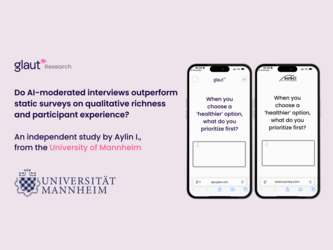Is there a research deficit?
The market research industry contributes more than £3bn to the UK economy but what value does it provide to the organisations that use it?
A small part of the work we do at PwC, Research to Insight (r2i), looks at the use of research within organisations. This has shown us that there is a huge disparity across individual organisations between the best practice, where research is a valuable investment that drives action and supports change, and the worst, where research can be seen as simply a cost burden.
Based on our observations we have made some hypotheses about what distinguishes those who get value from research and those who are not exploiting its full potential.
Insight is now derived from more sources than market research; as well as sales data and consumer feedback we have the many forms of social media as a rich source of information. The danger is that these sources become competitive rather than cooperative and the silo tendency within so many organisations means that the fully rounded picture has no chance to emerge.
Information is held at many different points so the knowledge is disconnected and fragmented. At its worst this can lead to research being duplicated for different departments adding cost wastage to the loss of value.
Modern research joins all the sources together and is conducted on behalf of the whole business and not just the marketing function. Customer complaints and employee understanding (particularly within service businesses) are all part of the big picture.
Another distinguishing feature depends on where research is being driven from. Is the strategy driving the research or is the research driving the strategy?
Where strategy drives research, the research is often commissioned to justify the decisions taken. It can therefore be undertaken late in the process and be perceived as holding things up. Senior decision makers are not fully involved in the process and just interested in the one line ‘answer’. Top line is prioritised and a high proportion of the research may never fully see the light of day. Research gets the reputation for being slow and cumbersome.
Where research drives strategy the company builds a customer intuition. A deep understanding of customers’ needs and values leads to better decision making. In this case the research has happened in a timely way before decisions are required and therefore there is more confidence within the organisation and less need to ‘check things’ before we go to market. Research gets the reputation of being central to the business and is at everyone’s fingertips.
There are still instances where research is being used to fill out a scorecard rather than to provide insight. This can lead to large, expensive surveys being conducted to drive a number of KPIs on a dashboard. Where these KPIs are drivers of performance bonuses there is a reluctance to change time series and the danger is that the metrics become increasingly detached from market realities.
This inevitably leads to a backward looking focus and diverts attention from current trends and anticipating the future. In today’s markets where the customer journey is constantly evolving it can lead to measurement of old customer habits just as new habits make the old ones irrelevant.
The work of the Ehrenberg Institute stresses the importance of getting new customers in the pursuit of business growth. Do customer surveys place too much weight on existing customers at the expense of finding new ones? Are organisations measuring the things that matter to the market now or the things that mattered to the business yesterday?
There has to be both pull and push with information being made accessible and available to those looking but also brought to the attention of those areas of the business where it will be useful. A survey conducted for one purpose will probably also contain information useful to other parts of the business.
And how is the budget set? Does the organisation look at last year and add some? Does that lead to the research function scrabbling to find projects at year-end to spend the budget so that it doesn’t get reduced by procurement next year? Or is there a careful bottom up process where the needs of the business and the need to understand the changing customer are carefully weighted and planned?
We don’t intend this to be an ‘attack’ on the research function. Quite the opposite; we want to promote the importance and value of research within an organisation. We believe that by highlighting some of the best, as well as some of the worst, we can contribute to an overall improvement.
Alison Blair is director, PwC, Research to Insight (r2i)

We hope you enjoyed this article.
Research Live is published by MRS.
The Market Research Society (MRS) exists to promote and protect the research sector, showcasing how research delivers impact for businesses and government.
Members of MRS enjoy many benefits including tailoured policy guidance, discounts on training and conferences, and access to member-only content.
For example, there's an archive of winning case studies from over a decade of MRS Awards.
Find out more about the benefits of joining MRS here.












3 Comments
Edward Appleton
11 years ago
An interesting and important discussion - BCG examined the same issue a few years ago, suggesting 4 stages of maturityfor clientside CI orgs. Your piece refers to "observations" - how extensive were they? And did you measure at all - eg how many and what type of organisations are increasing their spend and FTE commitments to Insight departments? And where is it decreasing? Tracking that kind of measure to me is valuable - the true test of how CI is winning the perceptual battle of adding value or not.
Like Reply Report
Alison Blair
11 years ago
Interesting you should ask about "observations" and "measurement" ... our initial discussion was based on anecdotal evidence from across the industry on a small scale and to be honest prompted us to investigate further and get some hard facts around our long considered view that businesses are not reaping what they sow in terms of insight ... however we have since conducted a pretty comprehensive piece of research looking at spend, value delivered and actions taken as a result, x-sector. Watch this space for more detailed survey findings to be shared soon.
Like Reply Report
Mickael
11 years ago
Measuring ROI is indeed a difficult task for a function like research. The added value it brings, can redefine everything for a business, and redefine the very notion of value at the same time. I very much like the simple opposition of strategy driving research, or research driving strategy. Simple and relevant. Thanks for this viewpoint.
Like Reply Report